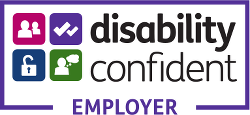Job summary
- Main area
- Trainee Echocardiographer
- Grade
- Band 6
- Contract
- Fixed term: 18 months (working over 4 long days)
- Hours
- Full time - 37.5 hours per week (8-6pm over 4 days, Cross site working between New Cross and Cannock Hospitals)
- Job ref
- 225-Div1-6249490
- Employer
- The Royal Wolverhampton NHS Trust
- Employer type
- NHS
- Site
- Royal Wolverhampton NHS Trust
- Town
- Heath Town
- Salary
- £35,392 - £42,618 per annum
- Salary period
- Yearly
- Closing
- 05/07/2024 09:00
Employer heading

Specialist Cardiac Physiologist -Trainee Echocardiographer (X2 Posts)
Band 6
Job overview
The Trainee Echocardiographer will be employed for a fixed term of 18 months during which time they will work through a programme of learning.
They will be supported by the Clinical Educator, but must take responsibility for their own progression through the training programme. Completing a mixture of work-based competencies and assessments, alongside the learning outcomes outlined in the NSHCS Curriculum Library. Trainees will additionally undertake the complementary academic Post Graduate Certificate in Clinical Echocardiography, and be required to prepare and complete the BSE Transthoracic Accreditation process.
The majority of training and development will take place in Cardiac Investigations Department, but there will be requirements to travel to the academic institution. The training and development will be underpinned by the knowledge and applied learning that forms part of the nationally recognised BSE accreditation programme. The post holder will be expected to undertake a range of scientific and clinical skills, initially under supervision, alongside the compulsory mandatory training.
At all times the Trainee Echocardiographer is expected to work within standard operating policies and procedures of the department and adhere to high standards of professionalism, health and safety, risk reduction, confidentiality, patient care and dignity and respect of equality and diversity as set out in the NHS Constitution.
Main duties of the job
The trainee will undertake the full training programme in order to progress through the academic and practical elements of the training scheme. In doing so they will learn how to perform and interpret clinical and specialist scientific processes. This includes but is not limited to the following:
Perform and interpret specialised cardiac investigations – specifically transthoracic echocardiography
Assist in specialised non-invasive diagnostic investigations
Carry out complex scientific and clinical roles
Analyse, interpret and report on complex data and understand the clinical implications of the data
Communicate and interact effectively within a multidisciplinary team.
Initiate and undertake research, clinical innovations and service improvement. Effectively disseminating findings and be involved in the education of healthcare science trainees.
Carry out audit to continuously improve patient care and service needs
Assist the Clinical Service Lead and other senior members of the team in the day-to-day delivery of the diagnostic service.
They will be expected to complete all work-based training and assessment for registration with the BSE and the Academy for Healthcare Science (AHCS). Trainees must meet the AHCS Standards of proficiency for Healthcare Science Practitioners.
Post qualification, and with appropriate additional experience and competencies, graduates from this post would be eligible to apply for Clinical Scientist equivalence and HCPC registration.
Working for our organisation
The Royal Wolverhampton NHS Trust is one of the largest NHS trusts in the West Midlands providing primary, acute and community services and we are incredibly proud of the diversity of both our staff and the communities we serve. We are building a workforce that can help us to fulfil our values, improve the quality of care for patients, and solve the health care problems of tomorrow. We’re passionate about the value that diversity of thinking and lived experience brings in enabling us to become a learning organisation and leader in delivering compassionate care for our patients.
We are delighted that we have been rated as “Good” by CQC. We have achieved numerous awards; The Nursing Times Best Diversity and Inclusion Practice and Best UK Employer of the Year for Nursing Staff in 2020.
The Trust is a supportive working environment committed to creating flexible working arrangements that suit your needs and as such will consider all requests from applicants who wish to work flexibly.
Detailed job description and main responsibilities
Main Duties and Responsibilities Expanded
- Scientific and Clinical Practice:
Undertake a range of clinical and scientific investigations as appropriate to the role.
Acquire and maintain a high level of professional competence in the performance of all tests, investigations and measurements carried out.
Interpret and act upon results of tests, investigations and measurements in accordance with departmental policies, procedures and quality systems.
Comment and advice on new proposals and protocols, especially for service improvements.
Assist in the provision of advice to medical, nursing and other healthcare staff on the optimal and safe use of scientific procedures and highly complex equipment, including assisting in the design of new facilities.
Assist with procurement, acceptance and use of medical devices and consumables.
Be responsible for the safe use of complex scientific and medical equipment, including recording all maintenance and calibration procedures performed and any corrective actions undertaken.
Use reagents, consumables, hazardous materials and equipment safely and in accordance with Health & Safety polices.
Participate in risk management procedures including risk assessments and the investigation and reporting of adverse incidents.
Participate in internal and external audit processes and quality systems.
Undertake R & D within the department as an integral part of training and acquire relevant skills to undertake clinical audit.
Assist with supervision and training of support staff, students and new appointees, and participate in departmental seminars and scientific meetings to disseminate knowledge acquired through study and research.
To carry out any other reasonable duties to achieve learning and experience that may be required, which are commensurate with the grade and nature of the post.
2. Education and Learning:
Successfully complete the training and assessment programme in conjunction with the training coordinator to achieve certified competence awarded by BSE.
Undertake suitable training to successfully acquire core competencies and thereafter maintain the required standards of competence when undertaking duties.
Take responsibility of own learning and development by recognising and taking advantages of all opportunities to learn, including appraisal, supervision, academic course and problem based learning and maintaining a personal portfolio of learning.
Ensure that own learning needs, identified with the training officer and reflecting the requirements of curriculum are met.
Retain sufficient flexibility and adaptability in learning to order full contribution to improving services in response to changing health care needs.
Maintain knowledge of recent scientific developments and undertake supplementary training to develop both knowledge and skill
Attend mandatory training as required
Participate in internal and external assessment processes
In addition to regular assessment and planning meetings, the trainee will have a biannual meeting to discuss progress and to consider issues relevant to the wider training programme.
3. Delivery of patient care-experience and contribution in the following areas:
Provide support to specialist clinics and specialist treatment interventions
Perform, report and interpret a range of investigations undertaken indirectly or directly with patients in a range of care settings.
Specialist care and treatment interventions for patients across a range of clinical pathways and health care settings
Appropriate clinical and scientific advice and interpretation of analytical results
Participate in multidisciplinary meetings
Apply and promote evidence-based practice and use of relevant clinical protocols and procedures.
Ensuring that all equipment used on patients and the public is handled and applied in accordance with health and safety requirements and other nation or international guidelines.
4. Communication
Communicate and interpretation of complex clinical, scientific and technical information to a wide range of people including physicians, managers, patients and the public.
Liaise with senior scientists and clinical users of the service on appropriateness of investigations, interventions and tests
Contribute to audits to inform patient management and clinical care.
Contribute to quality relating to accreditation and regulation
Perform quality assurance, process and outcomes audit relevant to specialism
5. Clinical Governance:
Maintain standards for health & safety procedures
Comply with quality and governance procedures within the department including risk management and risk mitigation
Maintain high standards of professional and personal conduct
Ensure that patient safety and experience and effectiveness of service are maximised.
Person specification
Qualifications
Essential criteria
- A 1st or 2:1 in Cardiac Physiology (PTP)or relevant scientific subject (examples include Pure or Applied Physics, Engineering, Biology or Human Biology, or Sports Science (if significant content) or equivalent experience and appropriate underpinning knowledge and skills in cardiology. As evidenced, for example, by appropriate voluntary registration with the Registration Council for Clinical Physiologists or Academy for healthcare Science
Experience/Skills
Essential criteria
- Has an understanding of the role of an Echocardiographer in healthcare and disease and its application in a healthcare setting.
- A committed, in-depth interest in Echocardiography and its application to direct clinical care of patients in a clinical environment.
- Have an understanding of quality control and management assurance in a science or work based context
- Ability to develop proficiency in the performance of routine and complex techniques currently in use (ability to follow Standard Operating Procedures accurately) Able to identify problems associated with scientific equipment, inappropriate testing, and incompatible results and to investigate these, plan corrective action confirming appropriateness with senior colleagues and follow up.
- Ability to analyse and assess scientific, technical and medical literature.
- Ability to use, maintain and troubleshoot scientific equipment.
- Good IT skills and knowledge of common computing packages for word processing, spreadsheets, presentations packages and databases.
- Ability to analysis complex information
- Excellent interpersonal and communication skills, both writing and speaking in English language in order to: Explain analytical, scientific and clinical aspects of the work to a variety of people including scientific colleagues, clinical professionals, service managers and patients and to listen to their needs.
- Make formal presentations to groups of colleagues
Knowledge
Essential criteria
- Knowledge acquired through study and experience to formulate appropriate advice and judgements, including clinical judgements involving facts or situations that impact on patients
Personal Attributes
Essential criteria
- Good active listening skills to build rapport and to encourage an open discussion. Self-aware and flexible enough to adopt a range of evaluative or empathising listening styles according to the needs of the situation.
- Ability to work autonomously in the planning and execution of their own work and under the guidance of their departmental Supervisors
- Flexibility to acquire the skills to organise, plan and monitor the workload of others.
- Ability to work under pressure (emotional resilience and ability to prioritise and plan work)
- Under guidance develops good interpretative skills in the formulation of advice to multidisciplinary team members on diagnosis and appropriate treatment of patients
- Good personal organisational skills
- Effective team worker, willing to adopt a role working in collaboration with others
- Good understanding of ethics and professional practice, the NHS constitution and the importance of patient -centred care
- Ability to support patients (or their carers) including those with a range of acute or chronic clinical conditions and disabilities in a variety of healthcare settings
Other
Essential criteria
- Reliable and flexible
- Ability to perform a wide range of duties according to job description
- Highly developed co-ordination skills with good dexterirty and hand-eye co-ordination and those skills required for the performance of fine analytical techniques
- Ability to meet travel requirements of cross site working.
Applicant requirements
The postholder will have regular contact with vulnerable people and as such this post is subject to the Rehabilitation of Offenders Act 1974 (Exceptions) Order 1975 (Amendment) (England and Wales) Order 2020 and as such it will be necessary for a submission for Disclosure to be made to the Disclosure and Barring Service to check for any previous criminal convictions.
Documents to download
Further details / informal visits contact
- Name
- Jennie Ward
- Job title
- Training Co-Ordinator
- Email address
- [email protected]
List jobs with The Royal Wolverhampton NHS Trust in Health Science Services or all sectors





